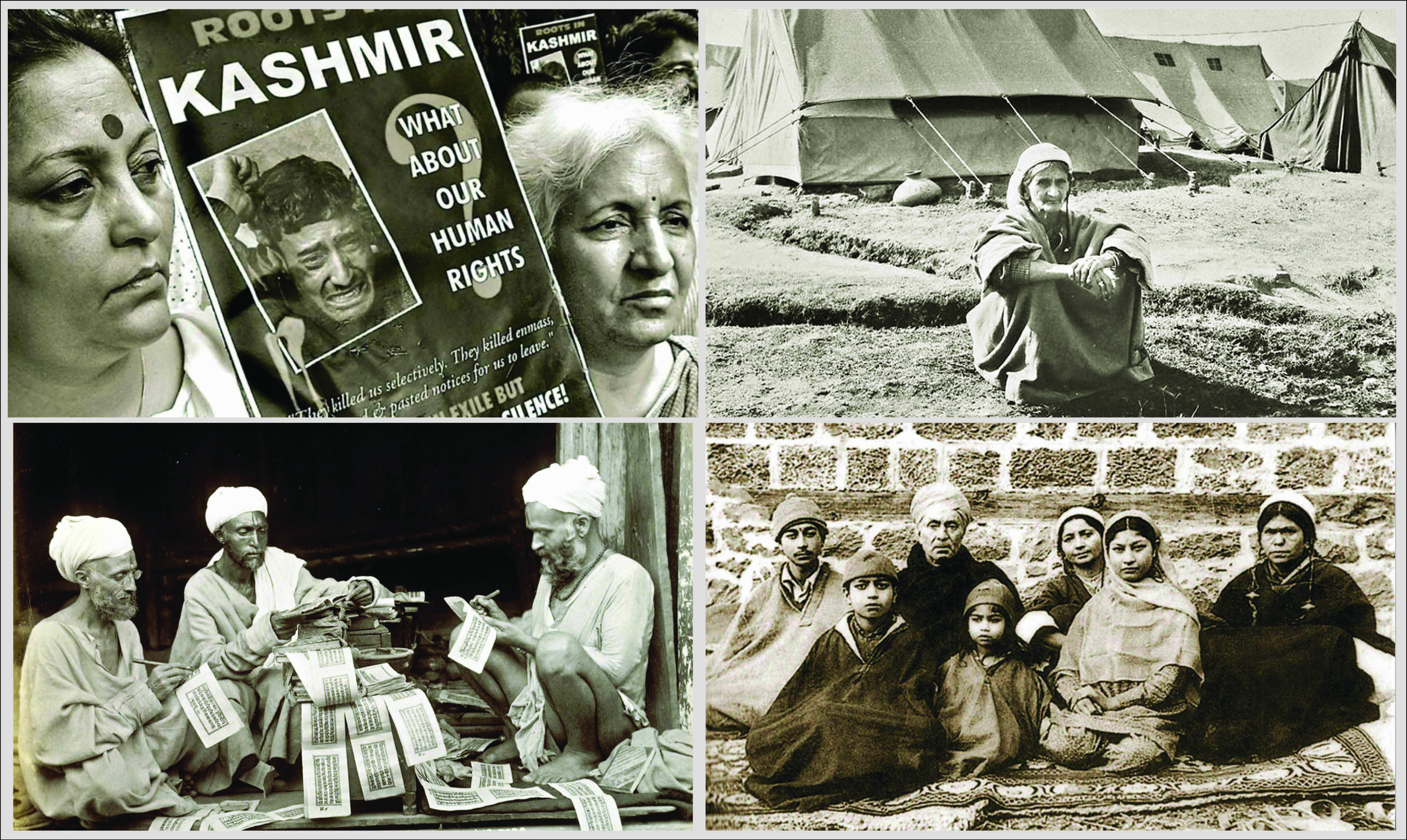Uncomfortable truth
The much-needed conversation around Kashmiri Hindus should lead to resolution of their long-standing demands rather than causing religious disharmony

I haven't seen 'The Kashmir Files' yet. I know there are mixed reactions to the film. Some say, it's an accurate depiction of the pain suffered by hundreds of Kashmiri Pandits. Critics of the film assert that it's a divisive film that embellishes facts and exaggerates them with the sole aim of creating religious disharmony. As I said, I haven't seen the film; I hope to if and when it becomes conveniently available on OTT platforms. However, I do know that whether we agree or disagree with the film's narrative, factual depiction, or motives, we can't deny that the exodus of Kashmiri Pandits has remained a neglected issue.
Most of the 90s' India remained blissfully ignorant when Kashmiri Hindus, a majority of them Kashmiri Pandits, were driven from their homes nestled in idyllic locales. Delhi would know some of it as it bore the brunt of the refugees, but others in different parts of the country were unaware of the seriousness of the situation. Only years later, while encountering Kashmiri refugees would one learn of the torment that they underwent. Some friends tell me they left behind thriving businesses, hotels, cinema halls, and of course, their homes; many thrown into refugee camps with squalid conditions overnight. The horror of the brutal killings, the ignominy of existence — the archival footage is enough to make one shudder.
This conversation around the forced immigration of Kashmiri Pandits from the valley has been long overdue. While we have discussed enough about religious fanaticism surrounding unfortunate events such as the demolition of the Babri Masjid, many have remained silent on the issue of Kashmiri Pandits. The exodus is an uncomfortable occurrence that took place in secular, modern India. It is also a complex issue; one-sided cinematic narratives don't speak of the friendships between Hindus and Muslims in the valley, many of which still endure. From time to time, a film will emerge, vocal Kashmiri Pandits will speak of the horrors, the government will also speak of 'ghar wapsi' of ousted erstwhile residents; but nothing really ever changes on the ground.
Films such as 'The Kashmir Files' successfully draw attention to a much-needed conversation about Kashmiri Hindu refugees. Its success has unsurprisingly led to talks of several upcoming films that will depict historical incidents of Hindu killings and massacre. Our historical films may glorify the struggles of the marginalised while evoking tears from the audience through evocative music and dialogue, but it doesn't stop there. Many filmmakers promise to show facts but thrive on titillation and misinformation. There has been violence on both sides; incidents of Kashmiri Muslims being gunned down by security forces or losing lives in skirmishes have also been a reality. In today's India ruled by the majority, where religious hatred is fast-becoming a part of casual rhetoric, this trend can prove to be dangerous. I'm against the whitewashing of any historical event, as uncomfortable as it may be. I'm also strongly against misrepresentation of facts or using cinema as a stealthy tool to promote any kind of religious hatred. When Hindus were murdered or Muslims were killed or Sikhs and Christians mutilated, those are our scars to bear. We should look back at those incidents in history with shame and discomfort, and squirm in our seats. But we should definitely be aware that those tragedies also happened in the history of our glorious nation and can happen again. And it's our duty as citizens and human beings to prevent violence and injustice.
Now that we are talking about the purported Kashmiri Pandit genocide, let's focus on what exiled Kashmiri Pandits truly need. An acknowledgement of their suffering, a public apology by the state for its inability to safeguard its people and their interests, and of course, justice, which has been elusive. Instead of vilifying entire communities, punishment should now be swift for those who were the perpetrators of this travesty, whether they are religious bigots or anti-state actors. Driving a wedge between Hindus and Muslims in an increasingly sensitive India will only harm our country and its people. It may serve the ulterior motives of some but in the long-run will leave behind a deeply disjointed society. The job at hand should be to find solutions — punish the perpetrators, compensate the Kashmiri Hindus who lost property and homes, rehabilitate the ones who still struggle to regain their lives, and most importantly, help them heal from the pain. Thirty years' time is long enough!
The writer is an author and media entrepreneur. Views expressed are personal



